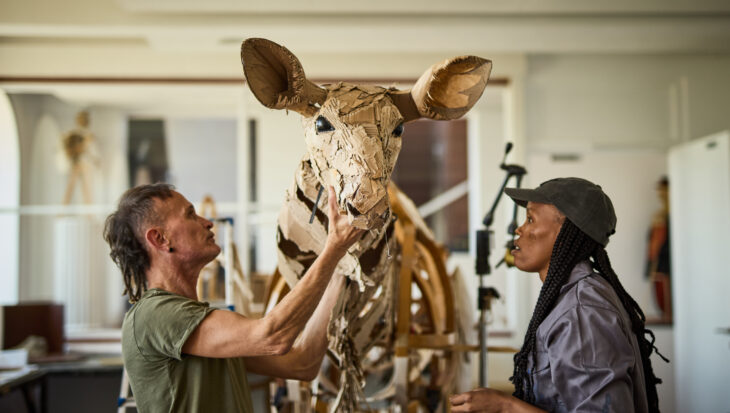‘The Herds’ will be arriving in London this Friday!
Have you heard? A breathtaking arts initiative, ‘The Herds’ will be arriving in London this Friday.
Posted 27 Jun 2025

Posted on the 16th January 2014
On 1st January 2012 battery cages were banned throughout the European Union.
But what should have been a huge step forward in improving the lives of farmed chickens was hijacked and watered down by the farming industry. Battery cages were replaced with ‘enriched’ cages, also called ‘colony’ cages.
Two years after the battery cage ban, Animal Aid has released new undercover footage showing the reality of life for hens in so-called enriched cages in the UK, as well as a new factfile called The Battle for the Battery Cage. It charts the farming industry’s successful campaign to prevent an outright ban on the use of cages for hens.
Despite the claims of improved conditions, enriched cages provide only an additional 50cm2 of space per hen compared with traditional battery cages. This is smaller than the area of beer mat. As you see in our film, the only enrichment provided in these cages is a scratching area, which often consists of a small piece of Astroturf that soon becomes covered in excrement. There is also a ‘nest-box’, which may simply be a screened-off area of the cage. There is no requirement to provide any form of bedding or comfort in the misleadingly named nest-box, or in any part of the cage.
Many people now believe that cramped, barren cages are a thing of the past, but they are still very much a part of modern chicken farming, with half of all eggs laid in the UK coming from hens in enriched cages*. Many of these eggs are used in everyday processed foods such as cakes, quiches and fresh pasta.
Have you heard? A breathtaking arts initiative, ‘The Herds’ will be arriving in London this Friday.
Posted 27 Jun 2025

As the greyhound racing industry releases its annual data on the number of dogs’ deaths, a raft of well-known names - alongside their canine friends - has called upon the Government to end greyhound racing....
Posted 26 Jun 2025
